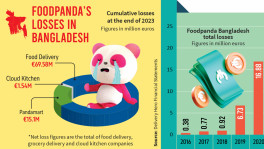Germany grants BioNTech, CureVac $745 mln to speed up Covid-19 vaccine work
Concerns have grown that safety and efficacy standards might slip in the race to find a vaccine against the virus which has so far infected more than 29 million people and claimed over 926,000 lives globally

Germany awarded $745 million in funding to biotech firms BioNTech and CureVac on Tuesday to speed up work on Covid-19 vaccines and expand German production capacity.
In a warning against political pressure to rush the process, Research Minister Anja Karliczek stressed that safety should remain the utmost priority to ensure vaccines will be accepted by the broader population.
"Even when the world is waiting for a vaccine - we won't take risky short-cuts here," she told a news conference in Berlin.
Concerns have grown that safety and efficacy standards might slip in the race to find a vaccine against the virus which has so far infected more than 29 million people and claimed over 926,000 lives globally.
Vaccine developers around the world have yet to produce large-scale trial data showing actual infections in participants, yet Russia granted approval to a Covid-19 vaccine last month, prompting some Western experts to criticise a lack of testing.
Karliczek said she does not expect a vaccine to be available for the broader population until the middle of 2021.
The ministry awarded BioNTech 375 million euros ($445 million) and CureVac 252 million euros in funding, subject to meeting certain milestones, after they applied under a scheme announced in July.
Both BioNTech and CureVac are among the leading developers of experimental Covid-19 vaccines, based on molecules carrying a genetic code called messenger RNA (mRNA).
The ministry said it was still in talks to provide funding to a third company, IDT Biologika, which produces vaccines for other pharmaceutical companies and is working on its own so-called viral vector vaccine.
Health Minister Jens Spahn said it was important to have a broad portfolio of vaccines and that Germany would look to secure more doses of potential Covid-19 vaccines in advance than its population size.
It has already secured 54 million doses of AstraZeneca's potential vaccine candidate as part of a European Union deal with the drugmaker for 450 million doses, he said.
Along with the funding for BioNTech and CureVac, Germany has contributed money to the Coalition for Epidemic Preparedness Innovation (CEPI) to bolster the testing of a potential Covid-19 vaccine.
Spahn said the government was due to decide this week whether to contribute to the "COVAX" global vaccine allocation plan, co-led by the World Health Organization, that aims to help buy and fairly distribute the shots. The deadline to join the programme is Friday.
($1 = 0.8406 euros)


 Keep updated, follow The Business Standard's Google news channel
Keep updated, follow The Business Standard's Google news channel
















